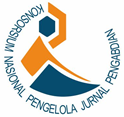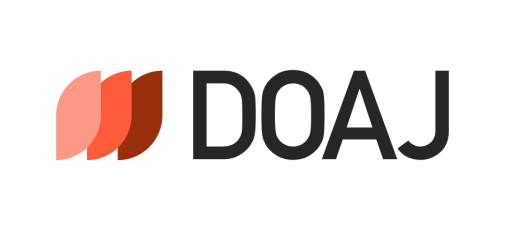Peningkatan Produktivitas Guru Muda dengan Pembiasaan Menulis Best Practice Ber-Mindset Riset pada Guru SMK di Kota Malang
Abstract
Permasalahan urgent para guru meliputi para “guru muda” yang mengajar sangat serba terbatas dari segi keaktifan mereka menulis dan menghasilkan karya ilmiah. Banyak guru yang melakukan malpractice untuk mengatasi ketidak-mampuan menulis karya ilmiah, kurang cukupnya pengetahuan, komitmen dan penerapan berbagai aspek tentang menulis karya ilmiah, dikarenakan kurang ada kesempatan mengikuti pelatihan terkait karya ilmiah, dan tidak adanya tim instruktur pada keorganisasian sekolah yang berfungsi membina para “guru muda” melakukan aktifitas untuk menghasilkan karya ilmiah. Metode pelatihan terbaru, yaitu “in-1,on, in-2” yang merupakan hasil merge antara kegiatan study, action, dan follow-up digunakan dalam kegiatan Pengabdian kepada Masyarakat ini. Kegiatan ini melibatkan guru muda (usia maksimal 55 tahun dengan golongan pangkat 3a-d) di SMK yang ada di Kota Malang. Kegiatan dilakukan selama 6x8 jam tatap muka dan kegiatan pendampingan dan konsultasi secara online dengan waktu sesuai kebutuhan. Hasil dari kegiatan ini meliputi: (1) kegiatan yang dilakukan pada pengabdian kepada masyarakat ini yaitu pra-pelatihan, kegiatan analisis pre-research, kegiatan research (tahap “on”), kegiatan post-research, pelatihan dan pendampingan, dan evaluasi pasca kegiatan; (2) pelaksanaan pembiasaan menulis best practice ber-mindset riset pada guru SMK di Kota Malang terbukti mampu meningkatkan produktivitas guru muda SMK; dan (3) para peserta menghasilkan produk luaran berupa best practice yang siap disubmit pada kompetisi best practice tingkat regional dan nasional.
Kata kunci— best practice, guru muda, guru SMK , penulisan karya ilmiah
Abstract
The urgent issue for teachers includes “young teachers” who teach very limited things in terms of their active writing and producing scientific works. Many teachers do malpractice to overcome the inability to write scientific papers, insufficient knowledge, commitment and application of various aspects of writing scientific papers, due to the lack of opportunities to take part in training related to scientific work, and the absence of a team of instructors in school organizations that function to foster students. "Young teachers" carry out activities to produce scientific work. The newest training method, namely "in-1, on, in-2" which is the result of a merge between study, action and follow-up activities is used in this Community Service activity. This activity involves young teachers (maximum age 55 years with rank 3a-d) in SMK in Malang City. Activities carried out for 6x8 hours face to face and online mentoring and consultation activities according to the time needed. The results of this activity include: (1) activities carried out in this community service, namely pre-training, pre-research analysis activities, research activities (“on” stage), post-research activities, training and mentoring, and post-activity evaluation. ; (2) the implementation of writing best practice with a research mindset on vocational high school teachers in Malang is proven to be able to increase the productivity of young vocational school teachers; and (3) participants produce output products in the form of best practices that are ready to be submitted in regional and national best practice competitions.
Keywords— best practice, young teachers, vocational school teachers, writing scientific papers
Full Text:
PDFReferences
Cinquin, P., Guitton, P., & Sauzéon, H. (2019). Online e-learning and cognitive disabilities: A systematic review. Computers and Education, Elsevier, 130, 152–167.
Dang, J., Wang, H., & Kang, H. (2019). Analysis on the Current Status and Path of Major Groups Construction in Higher Vocational Colleges. 2018 International Workshop on Education Reform and Social Sciences (ERSS 2018), 300, 444–448.
Daniels, M., Sarte, E., & Cruz, J. Dela. (2019). Students ’ perception on e-learning: A basis for the development of e- learning framework in higher education institutions. IOP Conf. Series: Materials Science and Engineering, 482, 1–7. doi: 10.1088/1757-899X/482/1/012008
Han, F., & Ellis, R. A. (2019). Initial Development and Validation of the Perceptions of the Blended Learning Environment Questionnaire. Journal of Psychoeducational Assessment, 00(0), 1–14. doi: 10.1177/0734282919834091
Hashim, S., Rahman, M. H. A., Nincarean, D., Jumaat, N. F., & Utami, P. (2019). Knowledge Construction Process in Open Learning System among Technical and Vocational Education and Training (TVET) Practitioners. JOURNAL OF TECHNICAL EDUCATION AND TRAINING, 11(1), 73–80.
Khlaisang, J., & Songkram, N. (2019). Designing a Virtual Learning Environment System for Teaching Twenty-First Century Skills to Higher Education Students in ASEAN. Technology, Knowledge and Learning, 24(1), 41–63. doi: 10.1007/s10758-017-9310-7
Kim, S., Raza, M., & Seidman, E. (2019). Improving 21st-century teaching skills: The key to effective 21st- century learners. Research in Comparative & International Education, 14(1), 99 –117. doi: 10.1177/1745499919829214
M Mustari, Hoya, A. L., Akmansyah, M., Diani, R., & Asyhari, A. (2019). Development of E-Learning Based Blogs on Global Warming Subject Development of E-Learning Based Blogs on Global Warming Subject. IOP Conf. Series: Journal of Physics: Conf. Series, 1–10. doi: 10.1088/1742-6596/1155/1/012036
Montgomery, A. P., Mousavi, A., Carbonaro, M., Hayward, D. V, & Dunn, W. (2019). Using learning analytics to explore self-regulated learning in flipped blended learning music teacher education. British Journal of Educational Technology, 50(1), 114–127. doi: 10.1111/bjet.12590
Mukhadis, A., Putra, A. B. N. R., Nidhom, A. M., Dardiri, A., & Suswanto, H. (2018). The Relevance of Vocational High School Program With Regional Potency Priority in Indonesia. Journal of Physics: Conference Series, 1028, 1–8.
Putra, A. B.N.R., Syafrudie, H. A., Nidhom, A. M., Smaragdina, A. A., Md Yunos, J. B., Sembiring, A. I., & Eriyanto. (2020). The innovation of module training based heutagogy as an acceleration for increasing pedagogical supremacy of vocational education lecturers in the industrial revolution 4.0. Journal of Physics: Conference Series, 1456(1), 0–7. doi: 10.1088/1742-6596/1456/1/012043
Putra, Andika Bagus Nur Rahma, Mukhadis, A., Poerwanto, E. E., Irdianto, W., & Sembiring, A. I. (2019). Edmodo-Based Makerspace as E-Learning Technology to Improve the Management Project of Vocational Students in the Disruptive Technology Era. 3rd International Conference on Sustainable Information Engineering and Technology, SIET 2018 - Proceedings, 302–307. doi: 10.1109/SIET.2018.8693224
Ramírez, P. A. M. (2019). E-Learning in the development of school scientific thinking in the Physics classroom. REVISTA CIENTÍFICA, 121–130.
Skorton, D. (2019). Branches from the same tree: The case for integration in higher education. PNAS Direct Submission, 116(6), 1865–1869. doi: 10.1073/pnas.1807201115
Thunqvist, D. P., Tønder, A. H., & Reegård, K. (2019). A tale of two reforms: Institutional change in vocational education and training in Norway and Sweden in the 1990s. European Educational Research Journal 1, 1–15. doi: 10.1177/1474904118823104
Tuwoso, T., Putra, A. B. N. R., Mukhadis, A., Mahamad, A. K. B., & Sembiring, A. I. (2020). Development of MOOCs synchronized life-based learning to improve the quality of outcomes in prospective vocational teachers in the era of education 4.0. Journal of Physics: Conference Series, 1456(1), 0–7. doi: 10.1088/1742-6596/1456/1/012051
DOI: http://dx.doi.org/10.17977/um045v4i1p%25p
Refbacks
- There are currently no refbacks.
Email: karinov@um.ac.id

This work is licensed under a Creative Commons Attribution-ShareAlike 4.0 International License.
Find Jurnal Karinov at:










